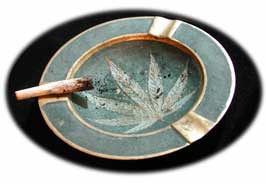By Martin Williams
WCL News — A new federal review and report has illuminated the failures of prohibition as a tool for controlling drug use. Despite hundreds of thousands of arrests and billions of dollars spent to reduce marijuana supply and demand, usage rates remain relatively unchanged while support for legalization has grown by leaps and bounds.
 The Office of National Drug Control Policy (ONDCP) released its annual National Survey on Drug Use and Health on Nov. 4, 2013, along with the Substance Abuse and Mental Health Services Administration. In the wake of the longest, broadest and most sustained attack in US history against the cannabis plant and its consumers, medical and otherwise, currently being waged by the Obama administration, social use has become more accepted and actually increased.
The Office of National Drug Control Policy (ONDCP) released its annual National Survey on Drug Use and Health on Nov. 4, 2013, along with the Substance Abuse and Mental Health Services Administration. In the wake of the longest, broadest and most sustained attack in US history against the cannabis plant and its consumers, medical and otherwise, currently being waged by the Obama administration, social use has become more accepted and actually increased.
Despite the blanket ban being foisted by the federal government, two states voted to legalize marijuana last year and the social consensus that cannabis is for adults and not for adolescents seems to be bearing fruit. The survey documents the fact that overall past-month marijuana use increased by less than half of 1% from 2011 to 2012, and use by individuals aged 12-17 decreased by less than three-quarters of 1%. Adults age 18 and above made up for the drop in teen use and use by seniors is reaching an all-time high for the US.
This outcome is consistent with the expectations of many drug policy reformers, who have long held that legalizing adult use of cannabis would not increase adolescent use and could have the effect of reducing it. As the plant becomes less controversial and is seen more and more as being a medicine rather than a recreational product, illicit use has lost some of its glamor among minors and teen use continues to go down.
“Today’s survey reveals nothing new,” said Dan Riffle, director of federal policies for the Marijuana Policy Project. “Billions of dollars are being spent to enforce marijuana prohibition laws, yet they have utterly failed to reduce supply and demand. By keeping marijuana illegal, our government is simply handing over control of a lucrative market to violent drug cartels instead of legitimate taxpaying businesses.
“The majority of Americans agree that marijuana prohibition has failed. It is time to replace our broken marijuana laws with a more effective and efficient system of regulating and taxing marijuana for adults. Marijuana is objectively less harmful than alcohol, and it is time to treat it that way,” added Riffle. The Marijuana Policy Project, the nation’s largest marijuana-policy-reform organization, has been instrumental in changing most state-level marijuana laws adopted since 2000.
Drug War critic and Hemp, Lifeline to the Future author Chris Conrad said that it is the efforts to legalize cannabis that have led to such approaches as responsible adult use, physician oversight, ‘good neighbor’ and safe smoking techniques. “The DEA and ONDCP want to glamorize marijuana to teens and keep marijuana in the hands of drug gangs,” said Conrad. “The reform movement wants to keep marijuana out of the hands of minors. Society has chosen its course, and only the vested interests of groups like the DEA, drug testing companies and the prison industrial complex want to maintain the status quo.” Ironically, he noted that Obama, himself a former pot smoker, is one of the biggest obstacles to reform.
“Obama has never explained to the country how it helps young people and, specifically, how he personally would have benefited from being arrested, losing his educational benefits and career opportunities and having a police record for the rest of his life for having chosen cannabis over alcohol in his younger days. Obama seems to take the retrograde position that since he was lucky enough to get away with it, screw everybody else,” said Conrad, “although the recent policy change announced in regard to state laws might mean that he’s evolving on this issue.” — West Coast Leaf News Service
